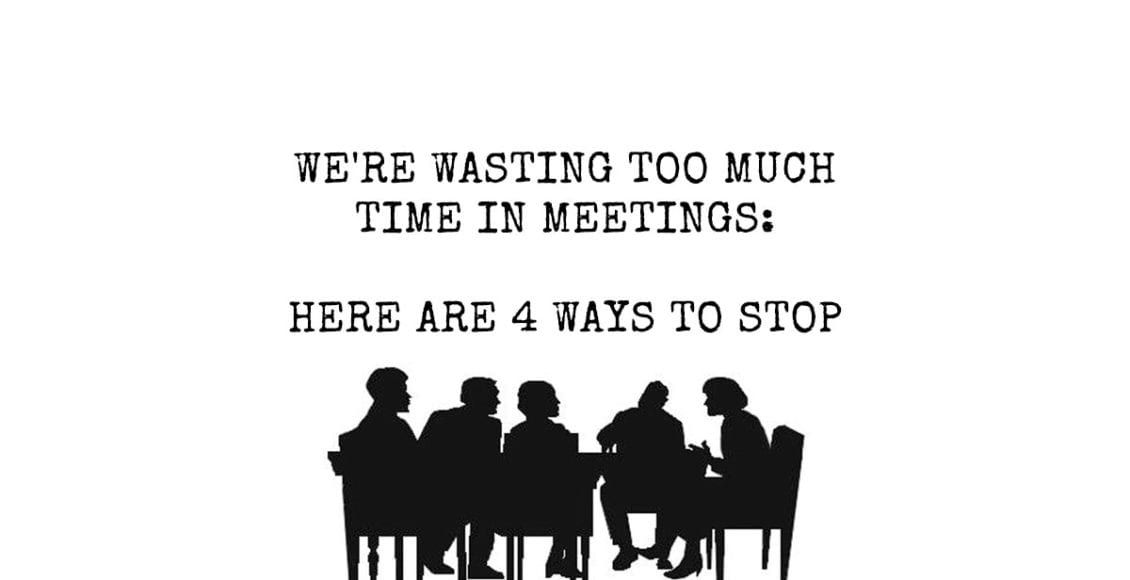“If you had to identify, in one word, the reason why the human race has not achieved, and never will achieve, its full potential, that word would be ‘meetings’,” quipped Dave Barry.
He isn’t wrong.
How many hours have you spent in meetings that could have been replaced with a quick email exchange? How often are you required to attend a meeting that has little to do with your job role? When you are sitting in a meeting, is most of your energy spent actually being productive – or simply trying to give the appearance of productivity?
Most importantly, what could you have been accomplishing during this wasted time?
Some meetings, of course, are absolutely necessary and productive.
Unfortunately, these are in the minority. A truly productive meeting has become the treasured exception, rather than the rule.
In fact, this problem has become so severe and ubiquitous that TED speakers David Grady and Jason Fried were able to place the economic impact of unnecessary meetings at $37 billion per year in the US alone. They found that the average American worker attends 62 meetings each month. A quarter of this meeting time is spent discussing issues that are not relevant.
In light of these statistics, it should come as no surprise that nine out of ten people report that they regularly daydream during meetings, and three out of four choose to occupy themselves with other work.
Clearly, our meeting intensive corporate culture is not working for us. We may not have the power to eradicate these time wasters altogether. However, we can take steps to ensure that our meeting time is as productive and focused as possible. Here are four ways to make your next meeting count:
1. Be specific.
Too many meetings begin with vague intentions and a scope that is unnecessarily broad. This can allow the timeline to truly go off the rails. More importantly, it keeps us from focusing on what we need to accomplish. Be intentional in defining the purpose of your meeting and the intended outcome. Set a single concrete end goal and don’t include topics that will not help you to reach it.
2. Ask questions.
If you are not the meeting organizer, you may feel that you do not have the power to do the above. This is simply not true. When you receive a vague meeting invite, don’t be afraid to ask for clarification. What is the goal of this meeting? What will we be taking away from this? Not only will you be more prepared, but the meeting organizer will have a chance to focus the meeting before it gets out of hand.
3. Define your involvement.
Often, a meeting organizer will include people who do not need to be on the invite in order to prevent anyone from feeling left out. This is a huge waste of time. You do not want to be one of these people. If you do not think your presence is necessary, decline the meeting. If you are unsure, ask what your involvement is and what input is needed from you. You may be able to save yourself some time by providing information via email or skipping the meeting entirely.
4. Come prepared.
Understand what will be needed from you before the meeting ever begins, and be ready to provide it. Encourage others to do the same. Touch base before the meeting to get a sense of what each person is expected to contribute. This will provide a much needed sense of focus and ensure that the group is prepared to tackle the issues it came to address. Adequate preparation can help to prevent unnecessary follow-up meetings.
“People who enjoy meetings should not be in charge of anything,” wrote Thomas Sowell. Make your meetings as effective and efficient as possible with the tips above. Become a leader in your company today.



